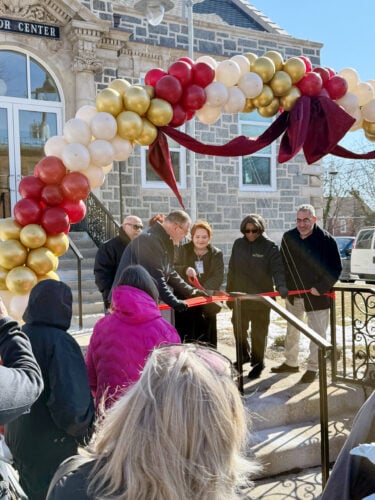New Jersey’s Worst Nursing Home Scandal: Fraud, Neglect, and Broken Trust

New Jersey’s nursing home system has been rocked by a damning investigation that exposed rampant fraud, medical neglect, and shocking abuse at some of the state’s lowest-rated facilities.
At the center of the scandal are three men—Michael Konig, Steven Krausman, and Mordechay “Mark” Weisz—who manipulated the system for personal profit while abandoning their duty of care to hundreds of vulnerable residents.
Over five years, their operations siphoned $253 million across ten nursing homes, with 76% of those funds derived from Medicaid.
However, the money wasn’t spent on improving care; instead, it was funneled into their businesses.
South Jersey Extended Care (SJEC) in Bridgeton and Sterling Manor in Maple Shade were among the state’s worst-rated nursing homes.
SJEC repeatedly earned a one-star rating, the lowest given by the Centers for Medicare & Medicaid Services (CMS).
Inspections at SJEC revealed shocking conditions.
Bedrooms were filled with flies and smelled of urine, toilets remained broken for days, and medications were often delayed, consequently putting residents at risk.
In one case, a nurse’s aide tied a dementia patient’s bedroom door shut with a trash bag.
In another, a staff member handled a resident roughly, causing the person to fall out of a wheelchair and suffer an injury that required hospitalization.
Despite the poor conditions, the operators enriched themselves.
From April 2018 to March 2023, SJEC received $35.6 million in Medicaid funds.
However, $38.9 million went to companies owned by Konig and Krausman.
The companies charged inflated prices for goods and services, often delivering much less than promised or nothing at all.
For example, Konig’s company, Broadway Health Care Management, received $10 million over two years but failed to provide enough qualified staff at the home.
Key positions, such as director of nursing and director of social work, were held by unqualified people.
One of them had even lost their license for forging prescriptions.
And the financial situation at SJEC became disastrous.
From 2018 to 2022, the facility’s assets dropped by 89%, and its debts rose by 43%, leading to $4.8 million in losses.
Weisz, listed as the owner, withdrew $1.3 million during this time.
Meanwhile, Konig and Krausman made $45.5 million by charging inflated prices.
Weisz later admitted he was only a figurehead owner and had no role in running the facilities.
This arrangement allowed Konig, who had been banned from operating nursing homes in Connecticut and Massachusetts for past violations, to avoid scrutiny.
Konig’s history includes severe misconduct.
In the 1990s, he was banned from running nursing homes in Connecticut and Massachusetts after incidents of abuse and neglect.
One case involved a death caused by improper handling during a patient transfer.
Despite this, Konig profited in New Jersey by transferring ownership to relatives while secretly controlling the operations.
His practices extended beyond SJEC and affected nine other nursing homes across the state, including Trenton, Union, Manahawkin, Perth Amboy, Teaneck, Cape May Court House, Toms River, and Maple Shade.
These homes paid his businesses $45.5 million over five years.
One of Konig’s companies, Geriscript Supplies, was supposed to provide medical supplies to all ten homes.
However, it only spent $3.6 million on supplies, while $6 million went to another of Konig’s businesses as consulting fees.
An additional $800,000 was funneled to a religious charity controlled by Konig.
Over five years, Konig and Krausman’s network of businesses collected $253 million from these homes, breaking federal and state laws.
Nursing homes must disclose relationships with related companies and limit their charges to fair market rates.
However, Konig and Krausman ignored these regulations and allowed their scheme to continue unchecked.
Even though Konig had faced penalties in other states, he could continue his fraudulent practices in New Jersey because of how ownership was hidden.
While the operators profited, residents suffered.
Essential medical care was delayed, and inspections repeatedly found dirty, unsafe conditions.
Medications were given late, and residents’ medical needs were often unmet.
One inspection reported fly-infested refrigerators and broken toilets left unrepaired for days.
Not to mention, the residents were often left in the care of unlicensed or unqualified staff.
The investigation, led by the New Jersey Office of the State Comptroller, reviewed financial and medical records from April 2018 to March 2023.
And it uncovered the full extent of the fraud and led to action.
Medicaid payments to SJEC and Sterling Manor will be suspended in 60 days and cut off a major source of revenue for the facilities.
Currently, state agencies are working to ensure residents are cared for during any sales or shutdowns.
Meanwhile, the comptroller’s office seeks to recover overpayments and impose penalties on those responsible.
This scandal has led to calls for reform.
Acting Comptroller Kevin Walsh recommended stricter rules, such as making nursing homes disclose their financial details and ownership structures.
Advocacy groups like AARP New Jersey are pushing for more transparency to prevent these problems in the future.
This case is a wake-up call for New Jersey. And it shows how vulnerable the system is and how easily bad operators can exploit it.
The state has over 40,000 people living in nursing homes, and they deserve better.
Taxpayers, too, have a right to know that their money is being spent properly.
The investigation is ongoing, but a clear message has already been sent.
Nursing homes need to be held to higher standards, with strict oversight and penalties for those who break the rules.
Residents deserve safe, clean places to live, and taxpayers deserve to see their money used for care, not greed.









